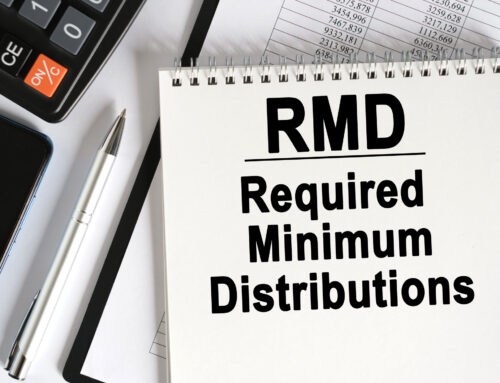
When we think of major retirement expenses, we often consider housing, healthcare, and that trip of a lifetime we’ve been dreaming about for years. But, we often fail to consider what could potentially be our biggest expense – taxes. Many of your sources of income in retirement are taxable, so don’t overlook these three unexpected taxes in retirement.
Tax on Your Social Security Benefit
Although you’ve paid into Social Security your entire working life, your benefit could be taxed, depending on your income. To figure out if your benefit can be taxed, add up your adjusted gross income, nontaxable interest, and half of your Social Security benefit to get your combined income. If your combined income as an individual is between $25,000 and $34,000 or is between $32,000 and $44,000 as a married couple filing jointly, up to 50% of your benefit may be taxable. And, if your combined income as an individual is over $34,000 or over $44,000 as a married couple filing jointly, up to 85% of your benefit may be taxable.[1]
RMDs Could Change Your Tax Situation
Starting at age 72, you will most likely be required to take Required Minimum Distributions (RMDs) from your tax-deferred retirement accounts. Distributions from traditional retirement accounts such as IRAs, 401(k)s, 403(b), 457, and Thrift Savings Plans are taxed as ordinary income, so consider how RMDs would impact your tax situation. The amount you must distribute every year is set by the IRS and could be higher than you want to distribute. This could mean an increased tax burden, as well as an end to tax-deferred growth. Age 72 is a birthday milestone that could change your tax situation, so plan ahead for it.
Have You Recently Inherited an IRA or Will You in the Future?
As of 2019, most people who inherit a retirement account from someone other than their spouse must empty the account within 10 years of the original owner’s death. This could mean paying more in tax than you originally anticipated. If you’re planning to pass on a 401(k) or IRA to someone other than your spouse, you should keep this new rule in mind when creating your estate plan. There are tax minimization strategies for those inheriting and passing on retirement accounts.
Rather than waiting to pay more in taxes on your retirement income, you may be able to take steps to help reduce your tax burden for the long term. Tax minimization strategies could include converting part or all of a traditional tax-deferred retirement account to a Roth IRA and working with a financial planning professional to integrate tax planning into your overall financial plan. To start exploring tax minimization strategies in retirement, click here to sign up for a complimentary financial review with Epstein & White!
Please Note: Epstein & White is a tradename. All services provided by Epstein & White investment professionals are provided in their individual capacities as investment adviser representatives of Mercer Global Advisors Inc. (“Mercer Advisors”), an SEC registered investment adviser principally located in Denver, Colorado, with various branch offices throughout the United States doing business under different tradenames, including Epstein & White. Information contained herein is for informational and illustrative purposes only and general in nature. It should not be considered investment advice or a recommendation to buy or sell any type of securities or insurance products and no investment decision should be made based solely on any information provided herein. We provide this information with the understanding that we are not engaged in rendering legal, accounting, or tax services. We recommend that all investors seek out the services of competent professionals in any of the aforementioned areas.
Investment in securities carries a risk of loss, including loss of principal amount invested. Different types of investments involve varying degrees of risk. It should not be assumed that diversification or asset allocation protects a portfolio from loss or that such will produce profitable results. An annuity’s guarantee is subject to the claims-paying ability of the issuing insurance company.




